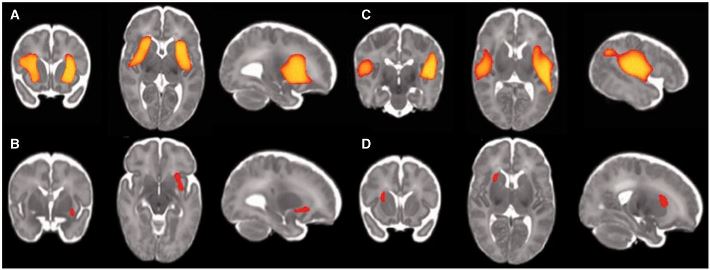----
Study: Neonatal MRI scans of preterm children can help predict cognitive and academic problems, and guide early interventions
// SharpBrains
Predicting future cognition in preterm children with MRI (Oxford University Press blog):
"In the wake of the development of advanced neonatal intensive medical care, more and more children born preterm manage to beat the previously tough odds…While this is one of the success stories of modern medicine, long-term follow-up of premature-born pediatric cohorts show that…Many children will experience cognitive problems that will impede their performance when they start school…
One question that remains to be answered is the biological underpinnings of the cognitive difficulties experienced by preterm children…the brain alterations causing difficulties in school must be assumed to be already present when the children have gone through the neonatal period, long before they manifest in school difficulties. Our recently published study in Brain aimed to bring advanced analyses of MRI data to address the question of hidden predictors in preterm children…Not only could cognitive ability at five and seven years of age be predicted from the neonatal MRI, the effect also persisted after taking into account all clinical factors during the neonatal period that we previously know affect the prognosis of preterm children. The results illustrate how neonatal MRI of preterm children can be of practical benefit as it opens up a time window for interventions before the children start school."
Study: Neonatal MRI is associated with future cognition and academic achievement in preterm children (Brain). From the summary:
- School-age children born preterm are particularly at risk for low mathematical achievement, associated with reduced working memory and number skills. Early identification of preterm children at risk for future impairments using brain markers might assist in referral for early intervention. This study aimed to examine the use of neonatal magnetic resonance imaging measures derived from automated methods to predict skills important for mathematical achievement (working memory, early mathematical skills) at 5 and 7 years in a cohort of preterm children …Neonatal fractional anisotropy was positively associated with working memory and early mathematics at 5 years…In summary, we identified, in the preterm brain, regions around the insula and putamen using neonatal deformation-based morphometry, and brain microstructural organization using neonatal diffusion tensor imaging, associated with skills important for childhood mathematical achievement. Results contribute to the growing evidence for the clinical utility of neonatal magnetic resonance imaging for early identification of preterm infants at risk for childhood cognitive and academic impairment.
----
Shared via my feedly reader


No comments:
Post a Comment
Note: Only a member of this blog may post a comment.